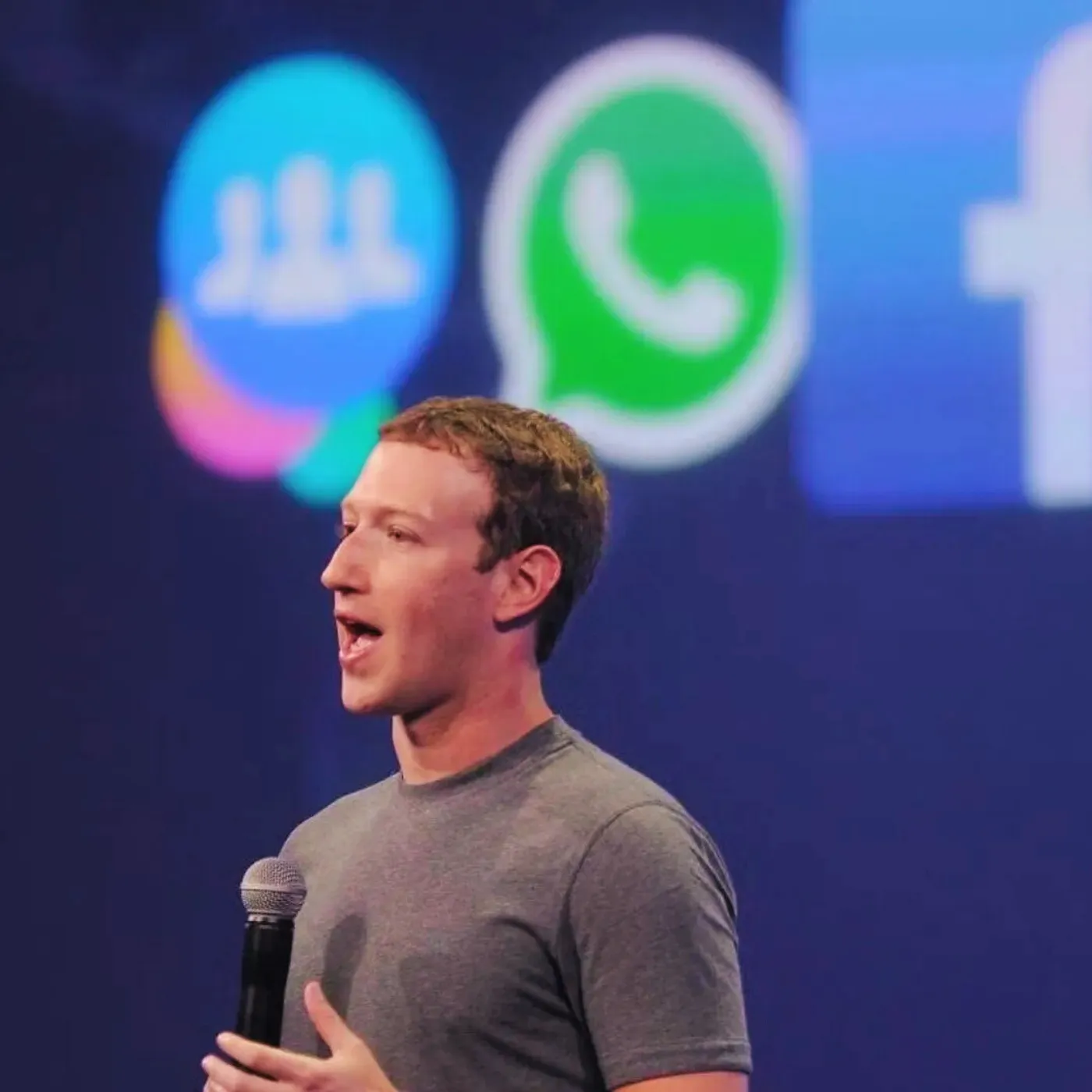

Mark Zuckerberg’s Metaverse Revolution and Meta’s Vision to Redefine Reality
The digital world is on the brink of a monumental transformation, led by none other than Mark Zuckerberg and his company, Meta. With the metaverse at the center of his vision, Zuckerberg is attempting to revolutionize how we interact with technology and the internet. But can the metaverse truly become the defining platform of the future, or is it destined to be just another passing trend in the tech world?

The Metaverse: A Vision of a New Reality
At its core, the metaverse is a shared, immersive, virtual space where people can work, play, socialize, and interact in ways that go far beyond what traditional digital experiences can offer. It’s a digital universe designed to bridge the gap between the virtual and the real, allowing people to exist in a new dimension entirely. Zuckerberg’s ambitious goal with Meta is to build a fully integrated metaverse where users can experience digital life in a way that mimics reality itself.
For Zuckerberg, the metaverse is not just the future of gaming or social interaction—it’s the next evolution of the internet. He’s betting billions of dollars on this vision, investing in everything from virtual reality (VR) headsets to artificial intelligence (AI), all with the aim of making the metaverse a reality. But will this vision succeed, or is it a lofty, unrealistic dream?
Zuckerberg’s Gamble: Turning the Metaverse into a Digital Empire
Zuckerberg’s push to dominate the metaverse has been nothing short of aggressive. In late 2021, he officially rebranded Facebook to Meta, signaling a clear shift away from traditional social media to an expansive digital universe. The move was controversial, as it came at a time when Facebook was already facing mounting scrutiny over privacy issues, data breaches, and the role social media played in the spread of misinformation.
However, Zuckerberg is undeterred. By rebranding Facebook to Meta, he’s signaling his long-term commitment to reshaping the digital landscape. His vision for Meta includes not just a virtual space for people to hang out but a fully immersive world that blurs the lines between physical and digital life. Meta’s recent acquisitions of Oculus, a leading VR company, and various other technologies are fueling this massive investment into creating a metaverse that could one day become the dominant digital platform.
But there’s a catch. The metaverse is an extremely costly endeavor, requiring not only technological innovations but also massive infrastructure investments. Zuckerberg is pouring billions of dollars into developing the hardware and software necessary to make the metaverse a reality. At the same time, Meta has faced significant financial losses from its metaverse projects, leading some critics to question whether Zuckerberg is overestimating the market demand for virtual reality.
The Metaverse’s Potential to Revolutionize Our Daily Lives
Zuckerberg’s metaverse vision goes far beyond gaming. In fact, he envisions it as a space for work, entertainment, education, and even socializing, all integrated into a seamless digital experience. Imagine attending a virtual meeting with coworkers from around the world in an office that exists entirely within the metaverse. Picture attending a live concert, experiencing an interactive museum exhibit, or shopping in virtual stores that replicate real-world brands—all from the comfort of your own home.
The metaverse could open up entirely new possibilities for remote work and virtual collaboration, giving people the ability to interact and create in ways that were once impossible. Instead of relying on video calls or text-based communication, users would have the ability to interact in fully immersive environments. This shift would undoubtedly transform industries, especially those reliant on remote teams, as it offers a more dynamic, engaging way to communicate and collaborate.
Moreover, Zuckerberg’s vision includes expanding the metaverse beyond entertainment and work. Meta’s vision also encompasses digital economies, where users can own virtual property, buy digital goods, and even create their own content for others to consume. This concept could lead to new markets and opportunities for entrepreneurship, providing creators with the tools they need to build thriving digital businesses. The idea of owning virtual assets, like virtual land or digital art, could become just as valuable as owning physical property in the real world.

The Challenges and Controversies Surrounding Meta’s Metaverse Vision
Despite the excitement surrounding the metaverse, Zuckerberg’s vision is fraught with challenges and controversial hurdles. One of the biggest obstacles is the question of accessibility. While Zuckerberg envisions a virtual world that anyone can access, the reality is that building a fully immersive digital space requires significant technological resources. The hardware needed to access the metaverse, such as VR headsets and high-end computers, remains expensive and out of reach for many people around the world. This could create a digital divide, where only those with the financial means can participate in the metaverse, further exacerbating existing inequalities in access to technology.
Moreover, the shift to a fully immersive metaverse could have serious implications for mental health. The line between the real world and the virtual world could become increasingly blurred, potentially leading to a range of psychological issues. For instance, extended periods of time in the Metaverse could foster social isolation, as people may choose to live out their lives in a virtual space rather than interacting with others in the physical world. Additionally, the potential for addiction to virtual environments is a growing concern, especially given the immersive nature of the metaverse.
There are also questions about the role Meta will play in the metaverse’s governance. Zuckerberg has already faced criticism over Facebook’s handling of user data, privacy concerns, and misinformation. Critics fear that Meta could use its power to control the Metaverse in ways that are harmful to users, such as exploiting user data for profit or creating a platform that prioritizes engagement over user well-being. Will the metaverse become a digital utopia, or will it be another example of a tech giant’s unchecked power over our lives?
Meta’s Financial Struggles and the Future of the Metaverse
Another significant challenge facing Meta’s metaverse ambitions is the financial sustainability of its projects. Although Zuckerberg has expressed confidence in the long-term potential of the Metaverse, the reality is that Meta has faced significant financial losses from its investments in VR and AR technologies. Meta’s Reality Labs division, which is responsible for developing the metaverse, posted billions of dollars in losses, leading some investors and analysts to question whether Zuckerberg’s vision is worth the massive financial gamble.
While Meta has a near-unfathomable budget to play with, the company’s financial struggles have raised concerns among stakeholders. The ongoing losses from Reality Labs have led to scrutiny from investors, especially as Meta’s core social media business, which generates the majority of the company’s revenue, is facing stagnation and competition from other platforms like TikTok. If Zuckerberg’s Metaverse project fails to gain traction, Meta could face significant financial setbacks that could affect its stock price and overall market position.
Is the Metaverse the Future, or Is It Just Hype?
While Zuckerberg’s vision for the metaverse is ambitious, the question remains: is it truly the future of the internet, or is it just another overhyped tech trend? There’s no doubt that the metaverse has the potential to revolutionize how we interact with technology, but the challenges involved in creating a fully immersive, accessible digital universe are immense. The financial costs, technological barriers, and societal implications make it unclear whether the metaverse can ever become a mainstream reality.
Moreover, the metaverse’s success is not guaranteed. It’s possible that, like many other failed tech innovations in the past, the metaverse could become a niche market rather than the all-encompassing platform that Zuckerberg envisions. As we’ve seen with previous tech trends like virtual reality and blockchain, what seems groundbreaking today can often fall out of favor tomorrow.

The Takeaway: A New Digital Frontier or Another Failed Dream?
Mark Zuckerberg’s vision for the metaverse is undeniably ambitious, and if successful, it could reshape the internet as we know it. However, the road to achieving this vision is fraught with obstacles, from financial hurdles to accessibility issues and concerns about privacy and mental health. Whether the metaverse will become a new digital frontier or remain a speculative dream is still uncertain.
Zuckerberg’s gamble on the metaverse could pay off, but it’s far from a sure bet. For now, we watch as Meta continues to invest heavily in this vision, hoping that it can overcome


















